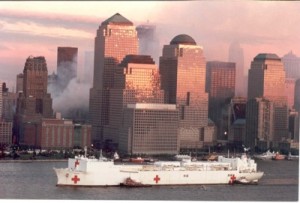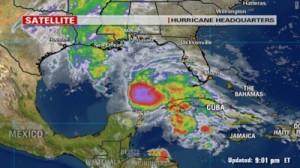Overdraft fees on checking accounts are lucrative, generating $30 billion in annual earnings for U.S. banks (which comes to $100 per banking customer) and £2.6 billion (or $4.3 billion total, $70 per customer) in the UK. As such fees constitute easy money, the banks may not be assessing such fees in a transparent manner. Consumers often report that when three charges hit their account, for example, two smaller ones that would not overdraw on the account, and a larger one that would, the larger one hits the account first, irrespective of the timing of the charges, such that three separate fees can be assessed for the three items, rather than one (clearing the two smaller items first on a positive balance and then causing a negative account balance with the third, largest charge). The Federal Reserve Bank’s new regulations allow for consumers choice in paying overdraft fees. Consumer protection authorities in the U.K. determined that the banks’ overdraft fees were randomly assessed, bearing no relation to the actual costs incurred by the bank in covering the negative balances. As banking fees can add up, it makes sense for you to comparison shop for your small business and scrutinize such fees carefully. Sometimes a polite complaint to the branch manager who values your business is all it takes to get a charge reversed.
Archive for November, 2009
New Scrutiny of Overdraft Fees
Monday, November 30th, 2009Severe Blizzard in China Tests Disaster Readiness
Monday, November 16th, 2009A massive snowstorm in northern China this past week caused $650 million in damages and killed more than 40 people who died in building collapses triggered by snow and ice or in automobile accidents. This provoked fears that the snowstorm was the result of Beijing’s Weather Modification program to seed for snow and rainstorms, addressing crippling water shortages in China’s arid northern regions. The program is intended to provide drinking water and water for irrigation, but has provoked concerns as to possible misuse. But experts say that a blizzard of this scale could not have been triggered by cloud-seeding efforts. The more relevant concern is China’s disaster level of disaster preparedness, which certainly elicits raw emotions given the casualties following China’s severe earthquake. It is typically the most vulnerable who suffer the greatest losses, both in human and financial terms, for inadequate disaster preparedness. And they are the ones who lack a basic social safety net, such as insurance. In case you were wondering about the photograph, since I have never seen snow in China, I included this picture I took at a Chinese silk factory. These are the silk coccoons made by worms, but as close a resemblance to snow as I could get!
Sept. 11 Terror Suspects to be Tried in NYC
Sunday, November 15th, 2009Much has been written about the Obama administration’s decision to bring 9/11 terrorist suspects held in Guantanamo to New York for trial, particularly as regards the threats to the City’s security. Even worse is the threat to the rule of law in the United States, as the Obama administration increasingly exercises its discretion in procedural matters. While the Administration believes that Khalid Sheikh Mohammed should be brought from Guantanamo to New York for trial, the Guantanamo detainees charged with planning the 2000 bombing of the U.S.S. Cole would face trials by military commission. It is troubling that the Obama administration is politicizing a fundamental issue of law and venue for its own purposes. Now consider the consequence of this decision for Lower Manhattan small businesses. We can look forward to years of disruption while this trial drags on. With the never-ending delays caused by political interference in the reconstruction of the World Trade Center site, we are often navigating a pedestrian obstacle course in Lower Manhattan. Add to that a civilian trial against Muslim terrorists and we can look forward to more rooftop snipers, truck bomb barricades and pedestrians walking single file on blocked sidewalks. Plus we will have the expense of police overtime at a time when the City’s coffers are drained by the recession and the Wall Street meltdown. Lower Manhattan small businesses are battle-weary.
We are still living with 9-11 owing to the painstakingly slow reconstruction process. And the major Wall Street banks that captured the corporate welfare in post-9/11 aid blew up our financial system in 2008, with devastating consequences for the local small business ecosystem. Merrill Lynch and Lehman no longer exist and “survivors”, such as AIG, have fewer employees. As a result, the restaurants, shops and other small businesses of Lower Manhattan are suffering. The Administration appears remarkably indifferent to the consequences of its decision for open access to Lower Manhattan small businesses once the 9/11 trials begin. This is gratuitous abuse.
I took this photograph, by the way, on September 14, 2001 when I was staying on the New Jersey waterfront after being evacuated from my home on 9-11-01. This photograph shows the U.S.N.S. Comfort, a hospital ship of the U.S. Navy, sailing up the Hudson River to provide additional support for victims to be recovered from the WTC site. Sadly, the ship’s hospital facilities remained unused as few survivors were found.
Ida Prompts Emergency Declaration Along the Gulf Coast
Sunday, November 8th, 2009Louisiana Governor Bobby Jindal declared a state of emergency as Hurricane Ida moved into the southern Gulf of Mexico. A hurricane warning is in effect from Pascagoula, Mississippi to Indian Pass, Florida. This area now includes New Orleans, which had earlier been excluded from the watch, and Lake Pontchartain. As of the time posting of this blog, Ida had maximum sustained winds near 105 mph with higher gusts, but is expected to weaken tomorrow and possibly begin losing tropical characteristics on Tuesday, according to the hurricane center. Ida is expected to be near coastal areas of the northern Gulf by Monday night or early Tuesday. It is expected that the combination of wind shear, cooler water temperatures and the interaction with a strong frontal system pushing off the Gulf Coast will weaken Ida’s force, but that Ida will nevertheless remain hurricane strength. In Alabama, Baldwin County officials declared a local state iof emergency and urged residents living in coastal communities or low-lying, flood-prone areas to voluntarily evacuate. Florida’s Division of Emergency Management asked residents to have disaster plans in place, as the State’s Gulf Coast has the potential to see several inches of rain, strong winds, isolated tornadoes and dangerous surf and coastal flooding beginning Monday evening and continuing into Wednesday. Thankfully, the Atlantic hurricane season ends November 30.
Sign of the Times
Friday, November 6th, 2009In the first edition of Prepare for the Worst, Plan for the Best: Disaster Preparedness and Recovery for Small Businesses (John WIley & Sons Inc., 2008), we were lucky enough to get an article on small business disaster preparedness in CostCo Connection, the magazine for CostCo’s members. This was particularly important for us as CostCo serves a large membership base of small businesses. So I was stunned to read in the newspaper that CostCo will begin to accept food stamps for payments of grocery purchases. As Hoovers (a business database of Dun & Bradstreet) states of warehouse shopping clubs “Demographics and small business growth drive demand, and spending in warehouse clubs generally resists economic cycles.” I am a member of both CostCo and its competitor Sam’s Club as both offer great cost savings for small business purchases. Nationally, one of eight American adults and one of out two children now receive food stamps. This development was inconceivable just two years ago.
Symantec’s Small Business Preparedness Survey
Wednesday, November 4th, 2009Symantec Corp. announced the findings of its 2009 SMB Disaster Preparedness Survey which reveals a large discrepancy between small business perceptions of disaster preparedness and the less flattering reality. While 84% of small businesses surveyed reported that the feel very protected for disaster and expect their customers to be patient with them while they recover from an outage, this is inconsistent with their own practices with vendors. While 42% of small businesses switched vendors because they believed the vendor’s systems to be unreliable, 65% expected customers to wait for them to recover from their own disasters. (The study included more than 1650 respondents from 28 countries in North America, EMEA (Europe, Middle East and Africa) Asia Pacific and Latin America.)
Disruptions are frequent: the average small business has experienced three outages within the past year, with the leading causes being virus or hacker attacks, power outages or natural disasters. Yet nearly half do not have a plan to respond to such disruptions. The survey found that only one in five (23 percent) small businesses back up daily and an average small business backs up only 60 percent of their company and customer data. More than half estimate they would lose 40 percent of their data if their computing systems were wiped out in a fire. The small businesses surveyed estimated the cost of these outages as being $15,000 per day on average, with 42% of outages lasting eight or more hours. One-quarter reported losing important business data.
In connection with the study, Symantec put forward the following recommendations, which are consistent with what I recommended in Prepare for the Worst, Plan for the Best: Disaster Preparedness and Recovery for Small Businesses (Wiley, second edition, 2008):
Determine your needs: Take time to decide what critical information should be secured and protected. Customer, financial and business information, trade secrets and critical documents should be prioritized. Monitor industry reports that help to identify and prevent threats that your business faces.
Engage trusted advisors: With limited time, budget and employees, you should look to a solution provider to help create plans, implement automated protection solutions and monitor for trends and threats to your business. They can also educate employees on retrieving information from backups when needed and suggest offsite storage facilities to protect critical data.
Automate where you can: Automating the backup process ensures that it is not overlooked. You can reduce the costs of downtime by implementing automated tools that minimize human involvement and address other weaknesses in disaster recovery plans.
Test annually: Recovering data is the worst time to learn that critical files were not backed up as planned. Disaster recovery testing is invaluable and you should seek to improve the success of testing by evaluating and implementing testing methods which are non-disruptive.
Swine Flu Precautions
Tuesday, November 3rd, 2009The Centers for Disease Control estimate that close to six million Americans have come down with the H1N1 virus, with confirmed cases in all states except New Jersey, Connecticut, Hawaii, South Carolina and the District of Columbia. Governor Patterson declared a swine flu state of emergency in New York yesterday when the state’s 75th fatality had been confirmed. A wide range of organizations are reconsidering their policies in view of the growing threat. Schools are suspending their perfect attendance awards, in order not to encourage students who may be ill to come to class, thereby putting others at risk. Churches are temporarily dispensing with the handshake of peace to reduce contact exposures. But in this touch economy, it is businesses that need to revise certain travel policies. A poll this month conducted by TripAdvisor.com found that 51% of people would board their flights, even if they had the flu, rather than pay cancellation or rebooking fees. To assuage safety concerns of other passengers, airlines should waive such fees temporarily so as not to incent risky behavior.





